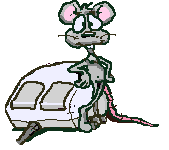
These are various responses and quotes on books written by Mr. Golding.
Pincher Martin (1956)
Like a cold sweat, a day-mare or going under gas... Prose
more tightly packed, more jaggedly
concrete, I can't imagine: and the shock ending, which
throws a new and doubly alarming
retrospective light on the whole book, is technical wizardry
of the first order.
Kenneth Tynan (in the Observer)
Golding's imagination works brilliantly just within the
limits of fantastic nightmare... Martin's struggles
in the water, with which the story opens, his slow climb
up the rock to a short of plateau on the top,
the confused meditations in which his rational minds
strives to reduce the horror of his position to
tolerable terms: of all this Golding writes with remarkably
sustained imaginative intensity.
The Times Literary Supplement
Darkness Visible (1979)
Golding has a great imagination, so he convinces even
if he is so dark. He believes that imagination
can penetrate in this "curtain where all threads are
moving", as says the soldier which saves Maty in
the beginning of the story. He believes that violence
in our century is a revolution against humiliation.
Maybe this is what he says when in "Darkness Visible"
the truth appears in Sophy's mind: "The road
to simplicity walks through the blasphemy, the desecration".
I consider myself lucky because I know Golding the last
20 years. He and some of his best works
compose a mystery to me. He didn't want it other way;
me too. What our century needs is mystery.
Anthony Storr
Even if Golding denys persistently to talk about "Darkness
Visible", his position in the whole work is
obvious. Because in this book he examines the sections
which attract him more: the extreme
behaviour for which the human is able, his ability for
the good and the wrong, his eternal strange
holiness and sin. And behind all these, lies the mystery
of the spiritual world which surround us
continually, but in his biggest part is closed to us,
forgotten or ignored from the most of the people.
In these mysteries, Golding penetrates , this darkness
tries to light, by choosing two characters who
lives mainly in the spiritual level but in completely
opposite poles... "Darkness Visible" gives more
because it just tries more. An exploration in the most
critical desert, where will happen the last
confrontation between the right and the wrong, the good
and the evil, between the darkness and the
light, between the God and the Devil.
"Darkness Visible" can be considered as a book full of
hope, which with his ending gives at least the
possibility of escape from a world which has the threat
of a nuclear bomb, the spiritual disorientation,
the continuous noise and the tyranny of words.
Don Crompton
The art of Golding is the art of exploring, but not the
art which tries to explain. It discovered that the
universe is inexplicable and it can't be described completely
with words. But words is the only thing
that a writer has. The problem of the language and its
relationship with the natural and metaphysic
world is a matter which always occupies Golding. We could
say that art is occupied exactly with this
matter. One of the strongest points in his writing is
that inside words, he can make us understand that
there are areas of being over the limits of language.
As Golding say: "The power, the sobriety, the
truth of a book can not be found in the fidelity of the
attribution of the phenomenal world, but in the
fact of how can it stand alone. Consciousness, intuition.
We stand in a height - or depth - where the
questions can not be answered with words."
...The mystery can not be explained - otherwise it wouldn't
be a mystery. So, Golding uses the
structure of his books, their shape and their form as
the vehicle of the meaning. The reader who
meets this structure by reading, forced to recreate and
reorganize the text. The complication of the
books forces the reader to this action. By living it,
he lives the paradox and the mystery as he tries to
find an explanation in the facts which the writer narrates.
The reader doesn't stay out of the text as an
objective observer, but he is pulled into this, he gets
complicated and driven, just to end in the
conclusion that some things are inexplicable
Philip Redpath
Golding has a particular part in the modern novel by staying
(to say it simple) such obviously "sui
generis", a writer original, unique and he made his personal
writing school. I don't write like him. But
he belongs to a category of writers, he composes a whole
category - he's the kind of writers which
I'm trying to be. This which I like more in Golding is
the different way he manages his subject in
every book, without standing at his previous successes
at all. Everyone knows that he's a great
fabulist, an excellent creative interpreter of the far
history (The Inheritors) when he wants it. But he
never relied on a granted approach, an already owned
power. He was for me something like an
ancient menir, a monolith which comes with the proves
that there are and other believes, other
religions. His example has helped me - as I believe that
has helped other writers too - to stand in
storms and swamps. He showed to us how vital is to trust
our sense of smell (our imagination), to let
it drive us, even in mistakes. To stay ourselves against
to conventionalities, fashions, flattering and not
criticals, commercial "wisdoms" and other related things.
I owe this to him. And now, the half of
shame to me and the other to him... Sometime he refered
to me by calling me "the young Fowles"
-something which had offended me deadly those times.
To revenge him, I call him "cher maitre" and I
embrace him warmly.
John Flowes